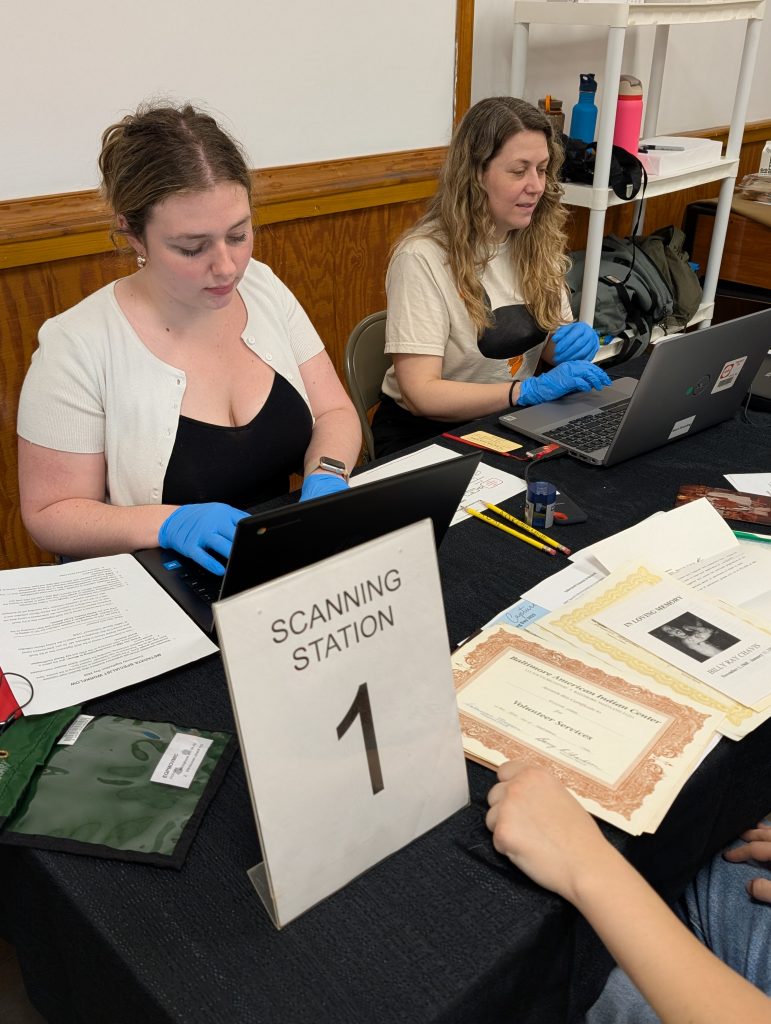Given the impact volunteering at UMBC’s Special Collections had on me over the fall semester, I felt compelled to return in the spring. And so I did, diving back in with a sense of familiarity and an ever-growing curiosity that led me to new and unexpected aspects of archival work. At the heart of this curiosity was the recognition that archival work is a form of care – care for people, their stories, and the spaces that hold them.
My duties for the Maryland Traditions Archives (MTA) remained largely consistent from the fall. I continued to hone my processing skills, this time pivoting to an Oella Company records box in Collection 348 with materials related to the George Ellicott House Restoration Project. Meticulously sorting through correspondence, fact sheets, and meeting notes deepened my understanding of the persistence and resilience involved in historic preservation, work driven by the dedication to maintaining a building so vital to the region’s history. Archivists in Special Collections embody that same dedication, whose daily efforts reflect care and stewardship for people and their histories. In addition to processing, a few unexpected tasks came up. I helped prepare materials for an archiving class by reviewing folders for sensitive content and supported the lighting setup for a photoshoot with Gef, Special Collections’ resident mascot, both of which reflect the quiet, behind-the-scenes efforts that contribute to the purpose of the archive.
What I found most meaningful this semester, though, was the opportunity to volunteer at MTA’s “Digitization Day,” an event focused on preserving the histories of Baltimore’s American Indian community. Sitting beside Susan Graham, Special Collections Librarian, in the South Broadway Baptist Church, I interviewed a community member while she scanned their documents. I was honored to learn the history behind the certificates, programs, and pictures the community member brought. Even after the event, as I transcribe the interview, I am struck by the narratives shared—an experience that will stay with me far beyond my time at UMBC.

Volunteering at Special Collections was a way to more deeply engage with my own research – to dig deeper into the methods I used for various projects. Now, it feels like a way to serve broader historical justice. Through processing records, preparing archival materials for instruction, and helping preserve community memory, I’ve come to see archival work as a research tool and a form of care. I am deeply grateful to Maryland Traditions Archivist Mark Breeding and the Special Collections team for their mentorship, trust, and generosity this year. What I have learned and experienced is invaluable.
This post was written by graduate student volunteer, Samantha DiNatale, M.A. ’25.